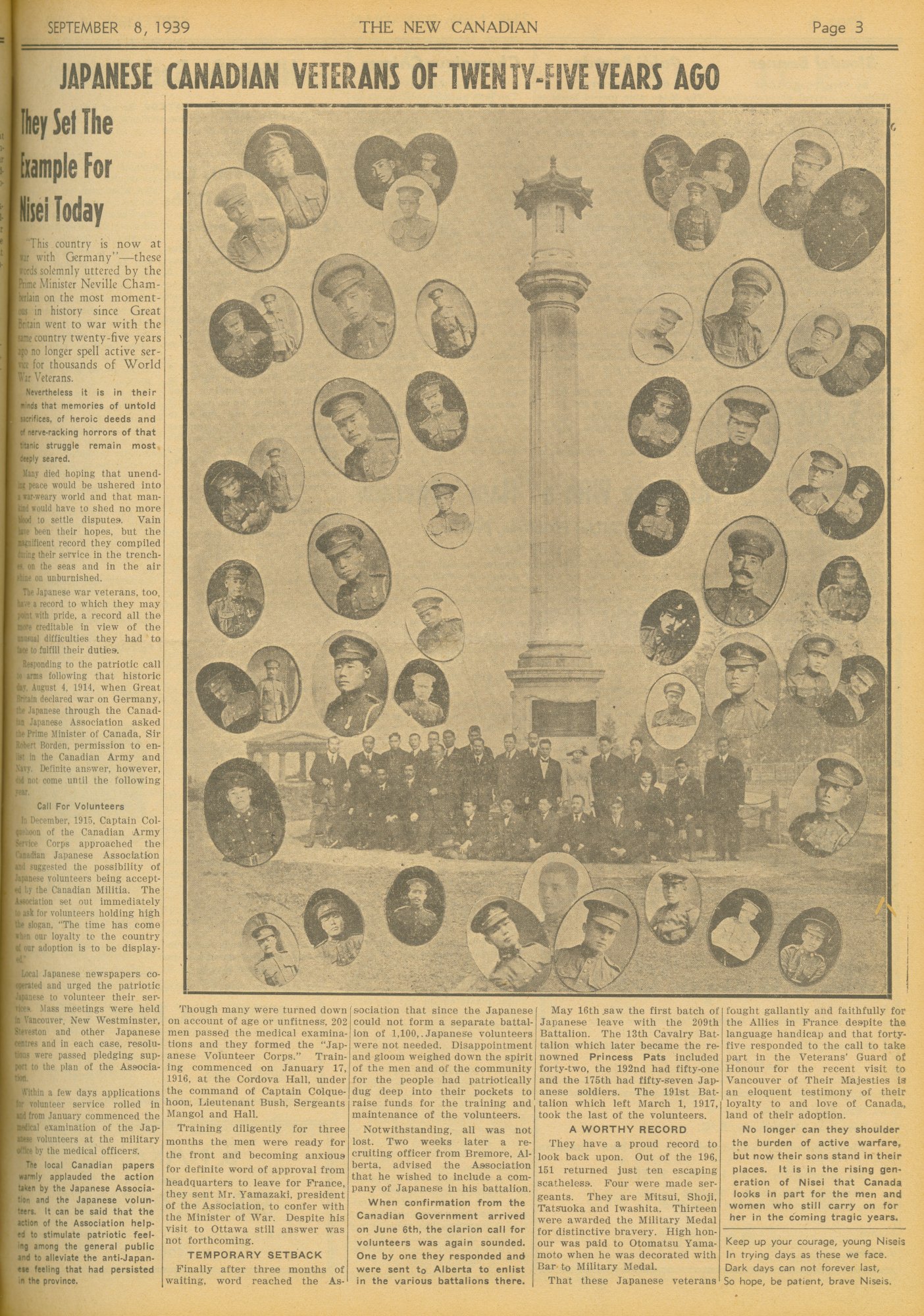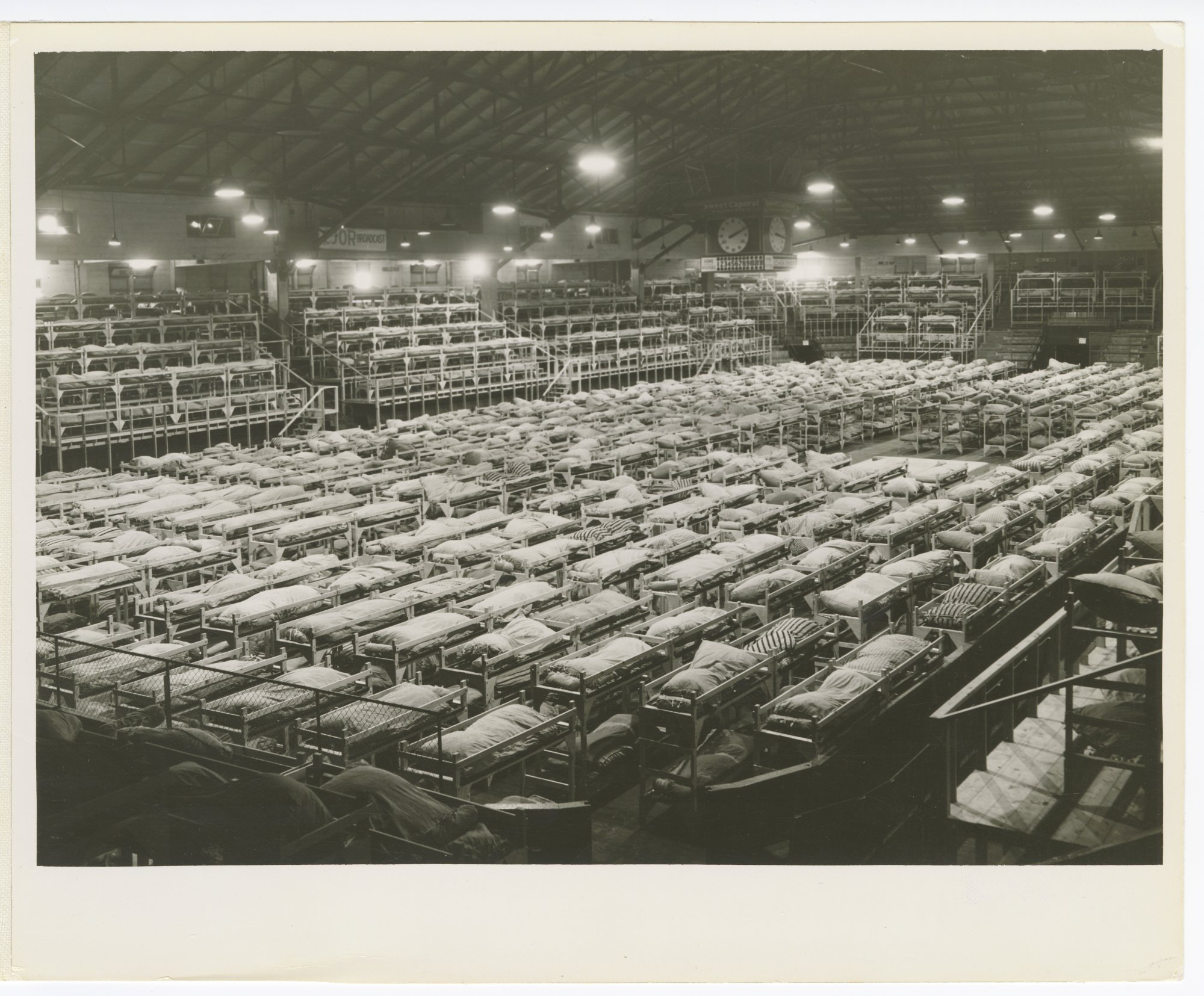Many nisei in BC attempted to sign up at recruiting stations at this time. They were turned down with no reason given for the refusal (Theurer and Oue, 2021, p. 119). Nisei were willing to sacrifice their lives to fight for the very rights and privileges that were being denied to them.
A Special Committee Meeting was held on October 1, 1940 to discuss whether Japanese and Chinese in British Columbia should be called up for military training. Dr. H. L. Keenleyside, one of the committee members, stated “the most deplorable aspect of the situation was the way in which the politicians (at various levels) and other people in the public eye persisted in making allegations about illegal entries, espionage, unfair competition and other offences with no substantiation for the accusations (Ito, 1984, p. 115)”.
In 1940, conscription for Home Defence began in Canada, and nisei began receiving orders to take medical examinations for compulsory military training (Ito, 1994, p. 108). Although medical examinations were completed, no call for training followed (Adachi, 1976, p.188, Broadfoot, 1977, p. 298). The reason behind the hesitation to permit nisei to enlist was the franchise. Vancouver City Council, led by Alderman Halford Wilson, had asked Ottawa to ensure that nisei who enlisted in the Canadian forces would not get the franchise (Adachi, 1976, p. 189, Ito, 1984, p. 108).
On January 8, 1941, Prime Minister King announced that a special investigating committee had recommended that persons “of the Japanese race” be exempted from military service. The decision was made, said the Prime Minister, based not on “mistrust of their patriotism” but on the dangerous anti-Japanese hostility in British Columbia (Adachi, 1976, p. 189). Again, the JCCL pledged cooperation. Many nisei were disappointed at being turned down again. The exemption isolated Japanese Canadians even further from the mainstream of Canada. Protests from nisei organizations were met with the statement from the Department of External Affairs that Japanese were being excluded to prevent unspecified “unfortunate incidents” (Adachi, 1976, p. 193).
Nisei in BC could see that relations between Japan and Canada were becoming increasingly frayed. They anticipated more surveillance and restrictions on their movements, but they naively believed that their Canadian citizenship would protect them from further harm.



